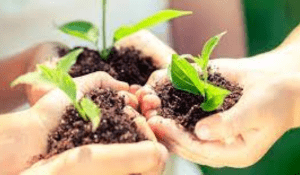Tribe, do you know soil health can be a key solution to many problems our world is facing including climate change, world hunger, biodiversity loss, etc.? That’s the reason we all need to have some basic knowledge of soil and soil health. On this World Soil Day, let’s learn how can we all contribute to improving soil health.
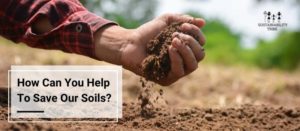
Why Soil Is So Important?
Soil supports life on Earth. Soil filters and purifies our water; reduces flooding, regulates the atmosphere by driving carbon and nitrogen cycles. The soil produces our food and also our medicines. According to FAO’s report in 2015, 95% of our food is directly or indirectly produced on our soil. But it takes a long time for our natural systems to create this soil. The same FAO report says it can take up to 1 000 years to form one centimeter of soil. We should better treat dirt with care!
One of the most important roles soil or mud plays is it acts as carbon storage. Atmospheric CO2 is absorbed by plants during the photosynthesis process. This carbon dioxide is then stored and captured in the soil in the form of soil organic matter (SOM) which can be plant matter decomposed into humus. Thus soil locks carbon underground in a safe and natural way.
But unfortunately, we have been degrading our planet’s topsoil layer for years and instead of storing more carbon, our soils are releasing carbon into the atmosphere causing further global warming and climate change.
Why Our Soils Are Under Threat?
But cutting our forests, we are creating industrial agriculture and cattle farming for meat. This deforestation, as well as urbanization, are creating changes in land use. The land and soil on top of it which was supposed to act as carbon storage is forced to release carbon into the atmosphere because of this land-use change. Moreover, unhealthy farming practices and forest fires are degrading our soils. Human actions are adding more intensive farming, soil compaction, acidification, salinization, chemical contamination, pollution, and soil erosion. According to a 2020 report by European Commission, 60-70% of EU soils are unhealthy. This degraded soil is unable to capture carbon or produce enough food. According to FAO, soil erosion poses a major threat to global food security and could compromise the wellbeing of at least 3.2 billion people globally.
We should definitely stop taking our soils for granted. And start actively conserving it. Here are our tips that you can follow to become soil champions fighting for soil health!
1. Support Organic Farming & Sustainable Food
In organic farming, no synthetic chemical fertilizers, pesticides as well as growth regulators, and livestock feed additives are used. Soil fertility is the cornerstone of organic management. So as a consumer or regular citizens, we should support organic products, organic farmers.
We should also support sustainable food, where more local, plant-based food is promoted and meat is avoided. Read our sustainable eating guide here.

One of the reasons for soil degradation is soil compaction. When heavy machinery is moved on industrial farms or due to a large livestock grazing in livestock farm; soil compaction takes place which results in a decline in soil structural stability. So when we support small organic farms where they don’t use industrial farming machinery or by reducing demand for meat; we support good agricultural practices which help in conserving soil.
2. Compost
In simple words, composting is a process where organic matter is converted into soil. Compost is an effective way to carbon sequestration in soil. So if each of us starts composting, we can convert our food waste and gardening waste into soil and help improve soil health by bringing nutrients back to the soil.
Read our composting guide for beginners. Here is our home composting unit review.
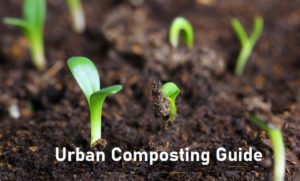
3. Grow Something Green
They say you can’t see healthy soil because it’s always covered by plants. So if you want to help conserve soil, start planting. You can cover up any bare soil with plants in your backyard, allotment, or any land where you have access to planting. Ideally, even farmers should grow trees on their farms. Because plants and trees hold the soil together with their roots and reduce soil erosion. Green covers on bare land help improve water quality, carbon storage as well as biodiversity. Plus if you are composting, you can also use up your compost in your garden. So go ahead and plant something green!
Read here some simple ways to grow food and start an edible garden.
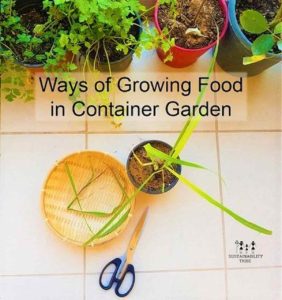
4. Planting For Soil Health
If you are already growing plants and trees then learn what to plant to improve soil health. Plants that pull nitrogen from the air help increase soil fertility. This is the reason why farms should adopt crop rotation that allows the soil to heal, refresh and revive.
One of the simple indicators is that your soil is not healthy is when you see plants or crops not growing well. In this case, you need to add organic nutrients to your soil. At this stage, you shouldn’t add synthetic fertilizers and degrade your soil even more. Legumes are the most notable nitrogen pulling plants. Read here how a dying plant was revived by planting a few legumes. This small crop ration experiment in a pot shows how improving soil health automatically improves crop yield.
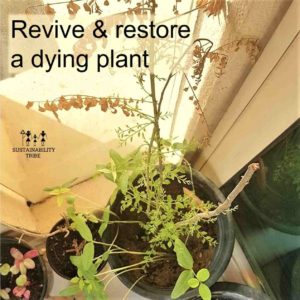
5. Create Habitat For Living Soil
Healthy soil is alive, is the place where different organisms thrive and flourish. So when we are talking about improving soil health, it’s important to get to know about friendly bugs, insects, and microorganisms that keep soils alive and organic. If you see any living organisms in your soil, don’t categorize them as pests. Learn which are pests and which organisms actually help in conserving soil. Because earth-warm, snug, snails, bacteria, fungi, protozoa, insects, or other invertebrates and mammals are part of Soil Biodiversity. This soil biodiversity provides ecosystem processes essential to the functioning of natural and global systems. A beautiful garden or ecosystem can not be just plants and flowers, there have to be insects, butterflies, birds; biodiversity. Create a garden that supports, nurtures these organisms and they will conserve soil and your plants will come out automatically healthy.
Here is our quick guide in attracting birds to your garden and supporting urban wildlife.
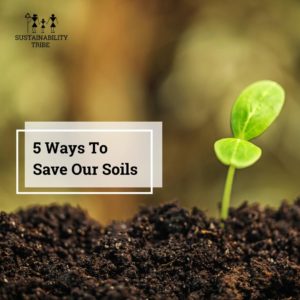
To learn more about World Soil Day visit FAO’s website (Food and Agriculture Organization, United Nations) and ISRIC.com (International Soil Reference and Information Centre- World Soil Information).
You can also become Sustainability Tribe’s Garden, Food or Youth Ambassador here

